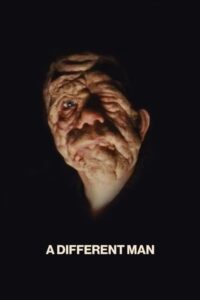Last updated on August 31, 2023
A film by Luc Besson
With: Caleb Landry Jones, Jojo T. Gibbs, Christopher Denham, Grace Palma, Marisa Berenson, Michael Garza, James Payton, Eric Carter, Frédéric Guérin, Bennett Saltzman
A boy, bruised by life finds his salvation through the love of his dogs.
Our Review: **(*)
There are a thousand reasons to hate Luc Besson‘s DogMan, but also a few to love it. The shortcomings of Besson‘s cinema, as we all know, stem from his very definition of what cinema should be: an entertainment industry first and foremost, which must deliver what consumers want to see. Before many others, he paved the way for a grandiloquent, simplistic cinema, focused on action and glitz (the famous look, born of his advertising years), hyper-emphasized, eschewing nuance, intellectual dialogue and the gesture so French, pursued and adulated since the New Wave. Manichaean to a fault, Besson resembles many American filmmakers who have no qualms about having to make intelligent films, and who prefer efficiency, the diligent following of a proven recipe. Besson made his fortune as an ogre producer, unashamed by the appalling stupidity of some of his productions (including his own post-Léon works, shall we say), probably saw himself as better looking and higher than everyone else, led American-style studio projects that turned into fiascoes after a resounding start-up, and above all, drags behind him a poor reputation, the justice system having taken up several cases of indecency involving him. What a curiosity, then, to see DogMan selected for competition at the world’s second-largest film festival(Cannes for us remains ahead) DogMan … What’s more, we soon realize that Besson has no idea how to turn into Bresson, Rohmer or Godard – the opposite would have been astonishing … What we get is Besson, pure and unadulterated. He plunges headlong into a style of filmmaking that abuses clichés (about drag queens, violent men, Hispanic drug dealers, etc.), underscores all his emotional intentions with music (Eric Serra is inspired here, as in his heyday), and plays on the contrasts between the characters, playing on the heartstrings in a hyper-relaxed, no-holds-barred way. He takes up a recipe that had already made Nikita or Léon a success, rather than The Fifth Element, by focusing on a singular character, cut off from the outside world, with human characteristics reduced to simple expressions of love and compassion, positioned as the victim of an abrupt world. He cares for this character like a muse, shaping him in such a way that we can feel sorry for him, empathize with his childlike psychology, and endow him with manifest qualities that contrast with the hardships life has thrown at him. Besson explores precisely the opposite possibility. In contrast to any naturalistic or realistic intentions, he places his hero in a disenchanted universe, where violent men are thick brute beasts, and paints a portrait of society that a 5-year-old child could paint. He fully assumes this bias, which, once accepted, allows us to relate to the tale itself, which is ultimately close to Disney. It questions (without going too deeply, of course) the concept of the wild child that resonated in Truffaut‘s mind (he too could identify with a wild child who sought affection wherever he could find it). DogMan (with its simplistic title, already used before by Garrone, another lover of fairy tales) shows a Mowglie who has been educated not by a bear, monkeys, a snake and a protective tiger, but by dogs: helpful, empathetic and endowed, for want of speech, with an almost magical capacity for understanding and coordination. He gives Caleb Landry Jones, who has already made a name for himself, a score that showcases his art of transformation (the famous wigs and disguises that have always appealed to Besson), his ability to arouse emotion through his voice, the way he moves, and the way he is able to give a queer spectacle. Above all, Luc Besson has the great idea of not only summoning icons such as Trénet, Piaf, Dietrich and Marilyn Monroe, but also of putting the pedal to the metal on other flaws so glaring in his worst films, when the action takes all the time, when the fight scenes are overdone with gestures, hemoglobin and stretched, pathetic choreography. Instead, he finds a rather interesting balance between elementary psychology reduced to its simplest expression, a narrative process based on compassionate flashbacks, benefiting from the ability to listen – and the mirror effect of the empathic process in which a young psychiatrist imagines her own traumas in the light of the wounds that the defendant she’s interrogating openly reveals to her – but also offers a few moments of humor that we haven’t encountered in his cinema for a long time. In terms of form, if we manage (not an easy challenge, we might add) to put aside the emotive-musical dressing, we note a polished mise-en-scène. The photography is particularly interesting, highlighting not only the situations depicted, but also the young actor’s expressive face, which mirrors the expressive gaze of the gentle doggies. The choreography involving the various dogs in scenes coordinated to perfection has nothing to envy to the millimetric precision usually found in films concerned with facetious hold-ups, the work of the trainers being remarkable here. By abandoning all seriousness and avoiding the omnipresence of violent acts – and the glorification of them – Besson manages to give DogMan a relatively gentle, luminous tone. It certainly speaks at the level of the child he has never ceased to be, and although it is part of a cinema of spectacle that we find hard to understand finding a place in a festival normally devoted to the art of cinema, let’s acknowledge that we were able to appreciate the spectacle precisely, short of having discovered a masterpiece of sensitivity or psychological finesse.










Be First to Comment